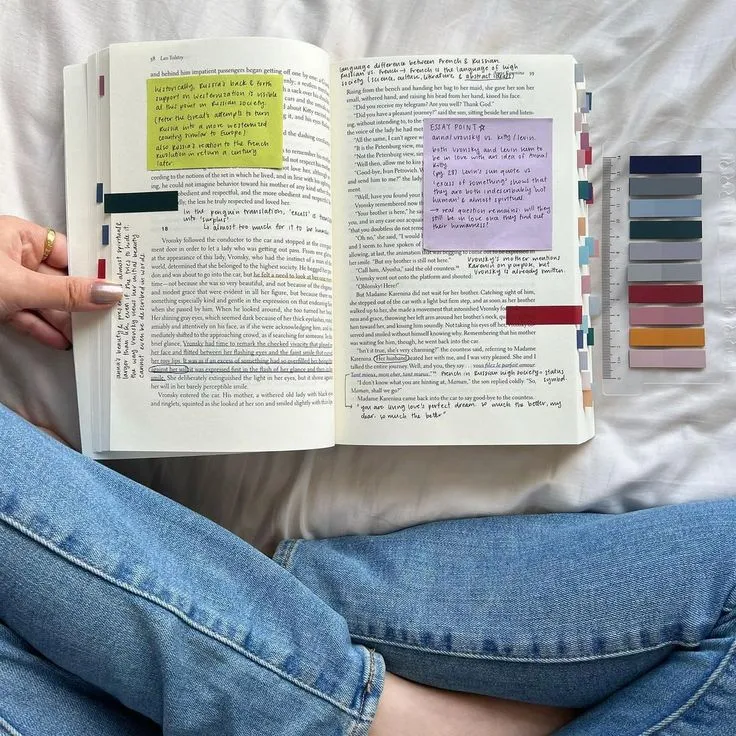I am an avid reader. By avid I mean, I read a book a week. I am also a professional writer. Reading and writing often go hand in hand. I’ve observed that in the past few years, social media has seen a surge of leisurely readers. The BookTok community on TikTok and Bookstagram community on Instagram have grown in popularity. Countless blogs reviewing books have cropped up all over the internet.
I too am guilty in indulging in all the online discourse about books. The more literary side of the web has taken up a hobby: annotating and tabbing books. Social media pages are filled with book lovers taking aesthetically pleasing photos of their books with scrawls in the margins and colorful tabs sticking out on various pages.
Annotating Books. How can it help you become a better writer?
For one, annotating books allows you to interact and engage with the book. It provides an immersive experience. It lets you have a dialogue with the book. Annotation allows you to read more intentionally rather than passively.
I have seen some readers on social media annotate, highlight, and tab nearly every word on every page! Their layouts look beautiful, but are impractical in day to day life. Also, stopping to annotate and tab that many times would create a very disruptive reading experience.
Aesthetics are not the main point of annotating. I keep annotating to a fair minimum. I only make notes or tab a certain line if it stands out to me, invokes emotion, or brings about thought provoking clarity. Often, I tab favorite quotes or lines that really moved me.
By annotating and tabbing my favorite lines, I take the time to study them. I study the structure, word-choice, and how creatively the idea was expressed. It is a quick mental process. I catalog that observation away to use later in my own writing. This has helped me improve my writing immensely!
The author of the book used an interesting word in a very beautiful way. Annotate.
The author expressed a complex idea in a succinct and impactful manner. Annotate.
The author wrote a line that deeply resonated with me. I’ve learnt something from it. Annotate.
You get the idea! By interacting with your reading material and studying your favorite segments of writing, you are inadvertently improving your own writing! You can gather all of these ideas and shelf them away in your head for the next time you sit down to write.
Reading improves diction, semantic structure, and use of figurative and metaphorical language. By intentionally interacting with another authors’ writing you are exposing your brain to written pieces with better usage of language. Your brain will pick up on these details, strengthening your ultimate usage of language.
As for the annotating itself, keep your system practical. Pick one to three tab colors to use and one pen with a different ink color than the book. I use only one tab color, two max. But, I understand how some attach meanings to tab color. Some people may tab quotes in yellow, useful information in blue, deeply moving characterization in pink, for instance. Try not to go above three tab colors. It can easily be too much.
If you prefer to annotate inside of your books, use a pen that won’t seep to the other side of the page. Keep your scrawls small, use abbreviations, and stick to the margins to avoid clutter within the text of the book. If you prefer to keep a separate little reading journal to jot down thoughts in, that is perfectly ok. I myself do not like writing directly into my books.
Do what works for you. The main idea is to intentionally interact with your book to reap its lessons, wisdom, amusement, and to study its written structure in an effort to improve your own.
How do you like to annotate and what do you learn from annotating your books?


Great Post!
ReplyDeleteThank you!
Delete